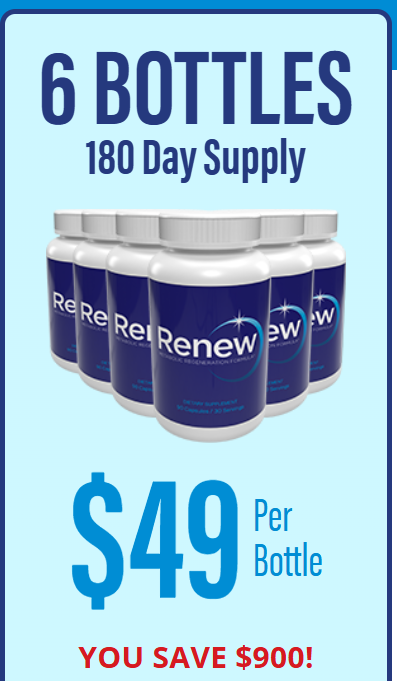Understanding the Deep Sleep Science helps us unlock better health, performance, and longevity. In this guide, we’ll explore what deep sleep is, why it’s important, and the proven strategies to improve it naturally.
Sleep is one of the body’s most vital processes, yet many people underestimate its importance. While all sleep stages are necessary, deep sleep (also known as slow-wave sleep) is the most restorative. During this stage, your body repairs tissues, consolidates memories, balances hormones, and strengthens immunity. Without sufficient deep sleep, you may experience fatigue, brain fog, weakened immunity, mood swings, and even long-term health risks.
The Science of Deep Sleep
Deep sleep is one of the four key sleep stages:
-
Light Sleep (Stage 1 & 2)
-
Deep Sleep (Stage 3)
-
REM Sleep (Stage 4)
What Happens During Deep Sleep?
-
Brain Waves Slow Down: Electrical activity shifts into slow delta waves, giving the brain a chance to rest.
-
Physical Recovery: Tissues, muscles, and bones repair, and growth hormones are released.
-
Immune Boost: The immune system strengthens, preparing the body to fight infections.
-
Memory & Learning: Deep sleep plays a vital role in consolidating memories and improving learning capacity.
Deep Sleep Science

Harness Deep Sleep’s Transformative Power
Discover how daily habits during deep sleep ignite fat-burning, optimize metabolism, slow aging, and boost your health by unlocking your body’s natural regeneration.
- Enhances Fat-Burning Efficiency Every Night
- Accelerates Metabolic Health and Energy Flow
- Supports Cellular Regeneration and Youthful Aging
- Boosts Overall Wellness Through Restorative Sleep
Breakthrough Insights in Deep Sleep Science
Explore critical findings revealing how deep sleep impacts fat-burning, metabolism, and aging.
2024
Fat-Burning Boost
This key finding uncovers how a nightly habit enhances your body’s fat-burning efficiency.
75
Metabolic Renewal
Demonstrates how deep sleep triggers metabolic processes that promote overall health.
60
Longevity Impact
Highlights the role of deep sleep in slowing aging and supporting regeneration.
Unlocking Deep Sleep Secrets to Transform Your Health
Explore groundbreaking 2024 research revealing a daily deep sleep habit that boosts fat-burning, metabolism, aging reversal, and total wellness.
Boost Fat-Burning Naturally
Discover how a simple nightly routine during deep sleep accelerates your body’s fat metabolism for sustained weight management.
Enhance Metabolic Efficiency
Learn how this deep sleep habit optimizes your metabolism, supporting energy balance and reducing age-related decline.
Activate Regenerative Health
Understand how engaging this singular deep sleep behavior unlocks your body’s natural repair processes to promote longevity and vitality.

Unlock Deep Sleep Science
Explore groundbreaking 2024 research revealing how a daily deep sleep habit transforms fat burning, metabolism, aging, and overall health by tapping into your body’s regenerative power.

Fat-Burning Secrets
Uncover how deep sleep triggers key fat-burning processes that revitalize your metabolism and support weight management.

Metabolic Mastery
Dive into the science behind metabolism optimization during deep sleep and its role in longevity and vitality.

Regeneration & Aging
Understand how nightly deep sleep habits influence cellular repair and slow aging for improved healthspan.
Unlock Your Body’s Potential
Discover how a simple nightly habit can transform your metabolism and health during deep sleep.

The Science of Deep Sleep: What Happens in Your Body
When you enter deep sleep, several processes take place:
-
Muscle and Tissue Repair: Growth hormone is released, aiding recovery and muscle repair.
-
Immune Strengthening: The body produces cytokines that fight infections.
-
Brain Detoxification: The glymphatic system clears toxins and waste from the brain.
-
Memory Consolidation: Experiences and skills from the day are transferred into long-term memory.
-
Hormone Regulation: Appetite hormones like leptin and ghrelin are balanced, reducing cravings.
Benefits of Deep Sleep
1. Restores Energy Levels
Deep sleep allows your body to recharge fully, helping you wake up refreshed and alert.
2. Improves Brain Function
By consolidating memories and clearing toxins, deep sleep enhances learning, focus, and creativity.
3. Boosts Immune System
A lack of deep sleep weakens your defense against colds, flu, and infections.
4. Supports Physical Recovery
Athletes and active individuals especially benefit from deep sleep as it accelerates muscle repair.
5. Regulates Hormones & Weight
Deep sleep helps control hunger hormones, reducing overeating and supporting weight management.
6. Enhances Emotional Well-being
Without enough deep sleep, stress and anxiety increase. With it, mood stability improves.
How Much Deep Sleep Do You Need?
On average, adults need 7–9 hours of sleep per night, with 20–25% being deep sleep (about 1.5–2 hours). Children and teenagers require more due to rapid growth and brain development.
Factors That Affect Deep Sleep
-
Age: Deep sleep declines naturally with age.
-
Stress: High cortisol levels disrupt slow-wave sleep.
-
Diet: Caffeine, alcohol, and heavy meals can interfere with deep sleep.
-
Sleep Disorders: Conditions like sleep apnea can reduce deep sleep quality.
-
Environment: Noise, light, and poor sleep hygiene affect sleep cycles.
Tips to Improve Deep Sleep Naturally
1. Maintain a Consistent Sleep Schedule
Going to bed and waking up at the same time helps regulate your circadian rhythm.
2. Create a Sleep-Friendly Environment
-
Keep your bedroom cool, dark, and quiet.
-
Invest in a quality mattress and pillow.
-
Limit exposure to screens before bedtime.
3. Practice Relaxation Techniques
Meditation, deep breathing, or yoga before bed can calm the mind and prepare you for deep sleep.
4. Watch Your Diet
-
Avoid caffeine at least 6 hours before bed.
-
Limit alcohol, which disrupts sleep cycles.
-
Consider magnesium-rich foods (almonds, spinach) to support relaxation.
5. Stay Active
Regular exercise promotes deeper sleep, but avoid intense workouts right before bedtime.
6. Try Sleep Supplements (if needed)
Some people benefit from melatonin, magnesium, or herbal teas (like chamomile or valerian root) to support restful sleep.
Deep Sleep vs. REM Sleep: What’s the Difference?
-
Deep Sleep (Slow-Wave Sleep): Focused on physical restoration, healing, and immune support.
-
REM Sleep (Rapid Eye Movement): Important for mental restoration, dreaming, and emotional balance.
Both stages are vital, but deep sleep is the foundation for physical and mental health.
The Dangers of Deep Sleep Deficiency
Not getting enough deep sleep can lead to:
-
Fatigue and brain fog
-
Memory problems
-
Weakened immune system
-
Increased risk of obesity
-
Higher risk of heart disease and diabetes
-
Mood disorders such as anxiety and depression
The Future of Deep Sleep Science
Researchers are exploring advanced ways to monitor and enhance deep sleep, including:
-
Wearable devices that track sleep cycles.
-
Brain stimulation techniques to encourage delta waves.
-
Nootropic supplements designed for better sleep quality.
As science progresses, the ability to control and improve deep sleep may revolutionize health and longevity.
Frequently Asked Questions (FAQ)
1. What is the most important stage of sleep?
Deep sleep is the most important for physical recovery, while REM sleep is crucial for mental health.
2. Can naps give you deep sleep?
Short naps usually only include light sleep. Longer naps (over 90 minutes) may reach deep sleep stages.
3. How do I know if I’m getting enough deep sleep?
Feeling refreshed upon waking and maintaining focus throughout the day are good indicators. Wearables can also track sleep cycles.
4. Does age affect deep sleep?
Yes. As you age, you naturally get less deep sleep, but good sleep hygiene can help maximize it.
5. Can supplements really improve deep sleep?
Magnesium, melatonin, and herbal teas may help some individuals, but lifestyle habits are more effective long-term.
Conclusion: Unlock the Power of Deep Sleep
Deep sleep is the foundation of health, energy, and longevity. From repairing muscles and boosting immunity to enhancing memory and stabilizing emotions, the benefits of deep sleep are endless. Unfortunately, modern lifestyles often disrupt this critical sleep stage.
By understanding the science of deep sleep and making simple lifestyle changes—such as improving your sleep environment, managing stress, and maintaining a consistent routine—you can unlock the power of restorative sleep and transform your health.
Getting enough deep sleep isn’t just about feeling well-rested—it’s about building a stronger, healthier, and more resilient body and mind.
